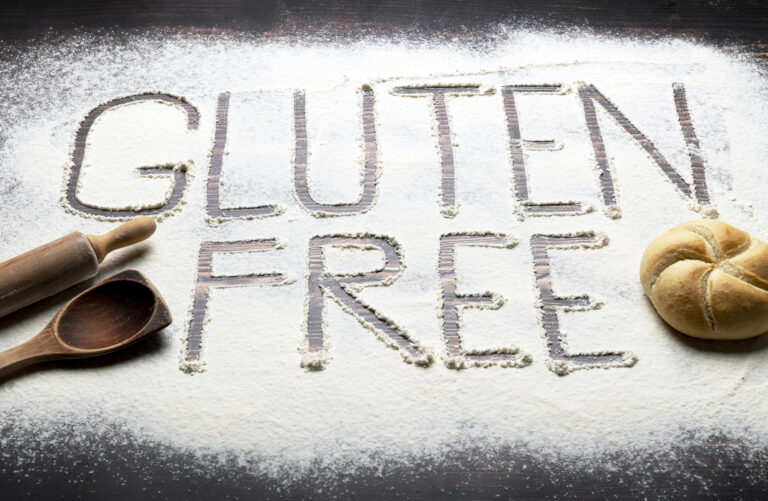Best and Worst Foods for Celiac Disease

Celiac disease, a serious autoimmune disorder, affects approximately 1 in 100 individuals worldwide, according to the Celiac Disease Foundation. It is estimated that 2.5 million Americans are undiagnosed and risk significant long-term health complications from unmanaged celiac disease. The prevalence of this condition emphasizes the importance of awareness and early diagnosis to manage symptoms effectively through dietary modifications.
What Is Celiac Disease?
Celiac disease is an autoimmune disorder triggered by gluten consumption, a protein found in wheat, barley, and rye. When individuals with celiac disease eat gluten, their immune system damages the lining of their small intestine, which can interfere with the absorption of nutrients from food.
This condition can cause various symptoms, including digestive issues, anemia, fatigue, and bloating. Contrary to common belief, celiac disease affects people of all ages, not just children.
What Is the Connection Between Gluten and Celiac Disease?
Gluten is the main trigger for celiac disease due to its harmful effect on the small intestine lining in sensitive individuals. When people with celiac disease consume gluten, their immune system mistakenly identifies it as a threat and mounts an inflammatory response. This leads to the destruction of villi, tiny finger-like projections lining the small intestine responsible for nutrient absorption.
Consequently, this damage impairs nutrient absorption and can lead to various health issues, including malnutrition, despite adequate food intake. Understanding this connection is crucial for managing celiac disease and maintaining a healthy gluten-free diet to avoid triggering symptoms.
Diet and Treatment of Celiac Disease
The primary and most effective treatment for celiac disease is a strict, lifelong adherence to a gluten-free diet. This approach involves eliminating all sources of gluten from the diet—including wheat, barley, rye, and any foods or products containing these grains.
Transitioning to a gluten-free diet can dramatically reduce the symptoms of celiac disease and promote healing of the small intestine. In addition to avoiding gluten, individuals with celiac disease should focus on eating a balanced diet rich in fruits and vegetables, proteins, and gluten-free grains to ensure adequate nutrition.
Consulting with a dietitian knowledgeable in celiac disease is often recommended to help manage the condition and to advise on suitable gluten-free options.
What Are Good Foods to Eat if You Have Celiac Disease?
Eating well with celiac disease requires focusing on naturally gluten-free foods and carefully selected substitutes that don’t contain gluten. Whole foods such as fruits and vegetables, meats, fish, eggs, nuts, and legumes form the foundation of a healthy, gluten-free diet.
Additionally, many grains and starches can be safely enjoyed, including rice, corn, potatoes, quinoa, millet, buckwheat, sorghum, amaranth, and teff. For those missing traditional bread and pasta, a wide variety of gluten-free alternatives made with these safe grains are available on the market. It’s also essential to include dairy products, which are naturally gluten-free, unless otherwise intolerant.
This diet not only helps in managing the symptoms of celiac disease but also ensures a balanced intake of essential nutrients.
Foods to Avoid With Celiac Disease
For individuals with celiac disease, it is crucial to avoid all foods that contain gluten to prevent triggering symptoms and causing damage to the small intestine. Key sources of gluten include wheat (including varieties like spelt, kamut, farro, and durum), barley, rye, and triticale. This means that many common foods such as bread, pasta, cereals, baked goods, and beer must be avoided unless labeled gluten-free.
Also, hidden gluten sources can be found in less obvious products like soups, sauces, salad dressings, and processed foods, due to additives or cross-contamination during manufacturing.
It’s also important to be cautious with oats, as they are often contaminated with gluten during growing or processing; only oats labeled as gluten-free are safe to consume. Reading food labels and knowing potential gluten-containing ingredients are essential to effectively adhering to a gluten-free diet.
Strategies for a Gluten-Free Lifestyle
Adopting and maintaining a gluten-free lifestyle requires planning, education, and perseverance, especially for individuals with celiac disease. Firstly, becoming proficient in reading labels on food products is imperative, as gluten can often be hidden in the ingredients list under different names.
Additionally, learning to prepare and enjoy gluten-free meals at home is essential to make this dietary adjustment more manageable and enjoyable. It’s also beneficial to explore gluten-free resources and communities that offer support, recipes, and tips from others who are navigating the same dietary restrictions. Eating out safely is another crucial element, which involves selecting restaurants with gluten-free options and communicating dietary needs to staff.
Lastly, staying informed about the latest gluten-free products and cross-contamination risks can help individuals with celiac disease lead a healthy, fulfilling life without feeling restricted by their dietary needs.
When to Talk to Your Doctor
If you suspect you may have celiac disease or if you experience persistent symptoms such as digestive discomfort, chronic fatigue, or nutritional deficiencies despite following a gluten-free diet, it is crucial to consult a healthcare professional.
Additionally, if you have been diagnosed with celiac disease and notice new or worsening symptoms, or if you struggle with managing a gluten-free diet, seeking advice from your doctor is important. Early diagnosis and proper management of celiac disease can significantly improve the quality of life and prevent long-term health complications.
Your doctor can guide you through the necessary tests for a definitive diagnosis and refer you to a dietitian specializing in gluten-free diets for comprehensive dietary counseling.
Celiac Disease is becoming an increasing concern. If you or someone you know is expressing interest in more information, please reach out to Allied Digestive Health. Our doctors are standing by to assist you.
Footer
©2025 Allied Digestive Health. All Rights Reserved.